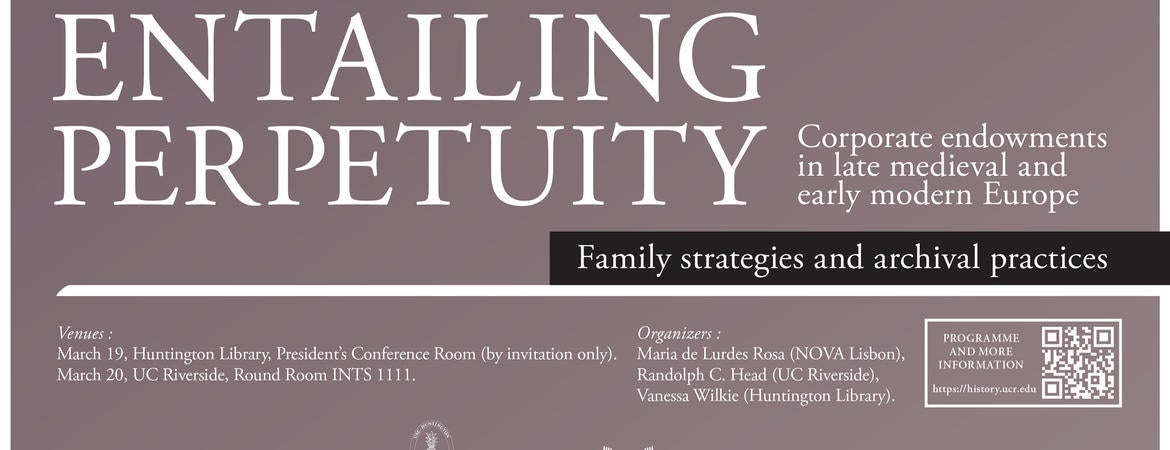
Few legal phenomena have been so relevant to premodern European societies as entails, a specific strategy that evolved to protect family inheritances and reproduce elite social status. Continued in modern practices such as trusts and LLCs, entails, as corporate bodies, functioned as a key site of social agency across Europe in the early modern period. By enabling aristocratic families to create stable patrimonial endowments immune to division by inheritance or dispersion by lack of heirs, entails of various kinds (mayorazgo, morgadio, Fideikommiss, strict settlement) fundamentally shaped the trajectory of European elites by creating impersonal multigenerational legal entities that became, in a very real way, key actors in shaping elite kinship pattersn, national political life and rural social orders. Significantly, the process of establishing, reproducing, and contesting entails depended on and profoundly transformed the production of both public and private archives and their organization, as recent research by the organizers has shown. Equally, the stepwise abolition of entails in much of Europe by 19th-century liberal states transformed elite identity and left profound traces in elite family archives. Yet many questions remain open that can be researched by bringing critical archival theory and new historical models of kinship to this phenomenon. How did entailment became authorized and institutionalized, how were the tensions between aristocratic self-interest and central control that it embodied negotiated, how did it function in comparative perspective, and how did it change?
Building on the Portuguese-Iberian case studied by the European Research Council “Vinculum” project in Lisbon, this workshop will examine entailment as a diverse but pivotal practice embedded in law, aristocratic discourse, and kinship-based organization, which was routinely constituted in and documented by private and public archives. The workshop will systematically break with traditional research frontiers by examining cases from the 14th to 17th century in both continental and Atlantic spaces, including both comparative perspectives and the study of later archival figuration and reconfigurations of entails as a social practice.
Organizers: Randolph C. Head, UC-Riverside – rhead@ucr.edu . Maria de Lurdes Rosa, Universidade Nova, Lisbon - missi@oniduo.pt . Vanessa Wilkie, Huntington Library - vwilkie@huntington.org.
Key participants invited: Warren Brown, Cal-Tech (early medieval society and record-keeping); Lloyd Bonfield, NYU (English legal history of entails); Pedro Cardim, Lisbon (Portuguese and Atlantic early modern History); Adam Kosto, Columbia (Archival practices in medieval Spain); Filipa Lopes, Universidade Nova Lisbon and US Fulbright program at Riverside (Portuguese noble archives).
Sponsored and supported by:
• “Vinculum”: European Research Council project, Universidade Nova, Lisbon
• UCR: Center for Ideas and Society, Departments of History and of Hispanic Studies
• The Huntington Library, Art Collection and Botanical Gardens
• Early Modern Studies Institute, University of Southern California